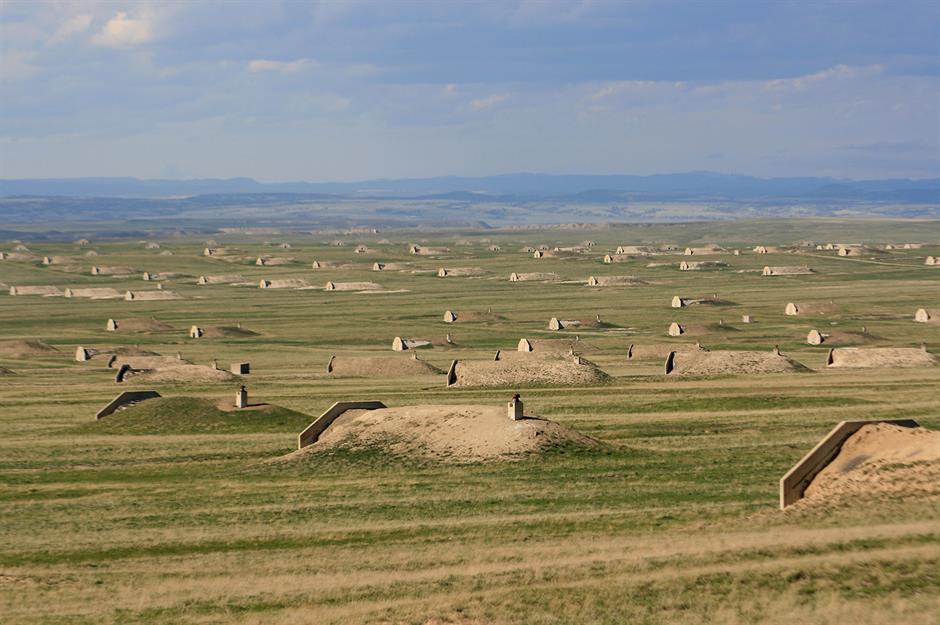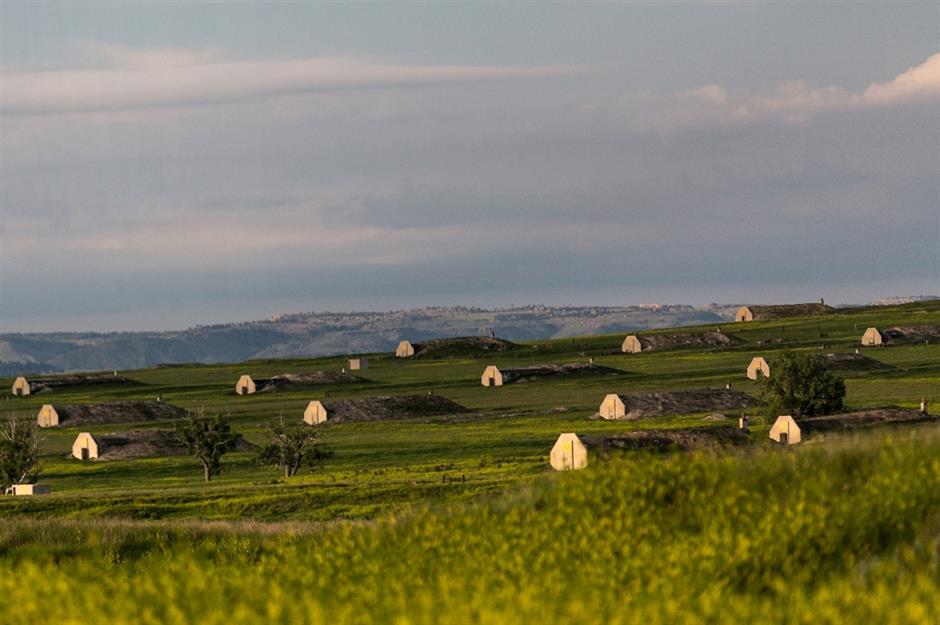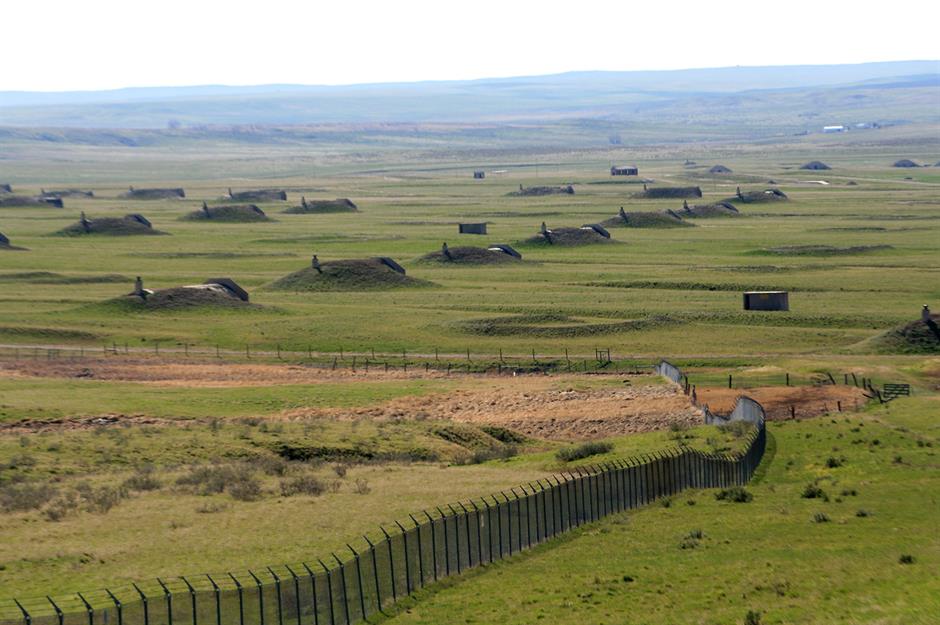A survivalist community is a group of people who are dedicated to the self-reliance and autonomy of their individual members, and to the collective security and preparedness of the community as a whole. Survivalists are typically motivated by a desire to be in control of their own destiny, rather than relying on the government or society for their protection and provision.
The goals of a survivalist community are to provide a safe and secure environment in which to live and work, as well as to provide for the basic needs of the members. This includes food, shelter, clothing, medical care, and basic supplies for survival. The members may also share information and resources, such as skills, supplies, and resources for self-defense.
Survivalist communities are often formed in response to perceived threats or disasters, such as natural disasters, civil unrest, or economic collapse. In some cases, these communities are formed for religious reasons, such as a desire to live according to a particular ethical code.
In addition to providing physical security, survivalist communities strive to create a sense of communal identity and shared values. This often includes a shared religion, culture, and language, as well as a common set of beliefs and practices. While the group members may come from different backgrounds and have different views on many things, they are bound together by their commitment to the safety and security of their community.

Survivalist communities typically range in size from a few dozen people to several hundred, depending on their location and the resources available. These communities are often geographically isolated and self-sufficient, and they rely heavily on their own resources and those of their members.
Survivalist communities often offer training and education in various survival skills, such as hunting, fishing, first aid, and self-defense. They may also provide members with access to specialized equipment, such as weapons, communications equipment, and specialized vehicles.
Survivalist communities are not just about survival, however. They also provide a sense of belonging for their members, offering a sense of community and a shared purpose. In this way, they can provide a valuable support system in times of distress.
Building a Prepper Community
When it comes to preparing for a potential future disaster, building a community of like-minded preppers or survivalists is a great way to ensure that you are not alone in your preparations. Whether you are new to the prepping community or a seasoned veteran, having a survival group of like-minded individuals to discuss preparations and exchange ideas can be very beneficial. Here are some tips on how to go about building a successful prepper community.
1. Identify the People You Want to Connect With: The first step to building a successful prepper community is to identify the people you want to connect with. These could be people who share similar interests, experiences, and beliefs. It is important to recognize that everyone is different and will have different survival philosophies and approaches, so try to be open-minded.
2. Choose Your Platform: Once you have identified potential members of your prepper community, the next step is to choose the right platform to connect with them. Social media, forums, meetup groups, and online communities are all viable options. Consider factors such as the size of the community, the type of conversations you want to have, and the level of engagement required from members.
3. Establish Rules and Guidelines: Establishing clear rules and guidelines is essential for maintaining a safe and productive prepper community. Make sure that everyone is on the same page about what is acceptable behavior, what topics should be discussed, and how disputes should be handled.
4. Make the Community Welcoming: Once you have established the rules and guidelines, the next step is to make the community a welcoming place for all members. This could include things like providing helpful resources, organizing events and activities, and encouraging a sense of camaraderie and support.
5. Encourage Engagement: An active prepper community is a successful one. Encourage members to engage with each other by asking questions, offering advice, and providing feedback. This will help to foster a sense of community and keep everyone engaged.
Building a successful prepper or survivalist community takes time and effort, but the rewards are worth it. By following these tips, you can create a safe and productive environment where like-minded individuals can connect, exchange ideas, and work together to prepare for whatever the future may bring.

Is survivalist a subculture?
The term ‘survivalist’ is one that has been used for decades to refer to those who are interested in being prepared for any situation. This is done by learning and practicing the skills necessary to survive in an emergency or disaster. However, is survivalism a subculture?
In recent years, the subject of survivalism has become more popular, with many people taking an interest in learning the necessary skills for survival. This is understandable, given the fact that the world is increasingly unpredictable and dangerous. As such, being prepared for any situation is increasingly important.
It is not difficult to see why some people may refer to survivalism as a subculture. After all, those who take an interest in it tend to share similar values, beliefs, and interests. Survivalists often have a strong sense of self-reliance, and they may also have an interest in alternative lifestyle choices, such as organic farming, canning, primitive skills, and even disaster or emergency preparedness.
However, it is important to note that survivalism itself is not a subculture. Instead, it is a set of skills and knowledge that can be used to help ensure one’s safety and security. It is not a lifestyle choice, and there are no specific values or beliefs that are associated with it.
At the same time, survivalism may be seen as a subculture in the sense that it is a part of a larger culture of self-reliance and preparedness. This culture is growing in popularity, and many people have embraced it as a way of life. From stockpiling food to learning primitive skills, survivalism is seen as a way to ensure one’s safety and security.
In conclusion, survivalism is not a subculture, but it is part of a larger culture of self-reliance and preparedness. It is a set of skills and knowledge that can be used to help ensure one’s safety and security in an unpredictable and dangerous world. For those who are interested in learning these skills, there are plenty of resources available to help them do so.
How Do You Find a Survival Community?
Finding an active, thriving survival community requires some effort from you as a member of the community. You will have to go beyond just checking out if the community has good reviews or not to determine its strength.
You need to look at what kind of activities the community members are involved in. Are they attending local meet-ups and training courses that focus on practical applications for preparedness?
If so, great! They seem like they would make smart people who want to be more prepared. If there are none of these things, then you may want to consider whether this group is a good fit for you.
It can be tricky because most communities were started by someone with very little money or resources who wanted to help other people learn how to survive disasters. Therefore, they needed to find ways to bring in income, such as selling products or hosting trainings.
But now that those things aren’t enough, many survivors feel that no one comes even close to offering the quality content that used to be available. This can leave people without any sense of community, which is totally possible — just don’t give up!
There are several ways to mitigate this problem, however. For example, you could start your own online course or do live lectures and seminars via YouTube or Twitch. People are always free to watch and form their opinions of you and your lessons, so why not use that energy to strengthen the network around you instead of weakening it?
Building a Sense of Community Without a Prepper Compound

One of the most common questions asked by those interested in prepping is, “How do I build a sense of community without a prepper compound?” The truth is, it is possible to build a strong sense of community without the need for an isolated compound. Preppers looking to build a sense of community and solidarity can do so in many ways, including attending preparedness meet-ups, joining online prepper groups, and getting involved in their local community.
Attending Preparedness Meet-Ups
The prepper community is growing and like-minded individuals are increasingly coming together in person to attend preparedness meet-ups and workshops. These events provide a great opportunity to meet other preppers in your area, discuss prepping strategies and techniques, and build relationships with those who share similar preparedness goals.
Joining Online Prepper Groups
Online prepper groups are another great way to build a sense of community without a prepper compound. With a variety of social media platforms available, it’s easy to find and join prepper groups. Once you join an online prepper group, you’ll be able to share ideas and experiences, ask questions, and get advice from other preppers.
Getting Involved in Your Local Community
Getting involved in your local community is also a great way to build a sense of community without a prepper compound. Consider joining a local civic organization, volunteering at a soup kitchen, or helping out at a food pantry. By taking part in activities that benefit your community, you can make meaningful connections with other preppers and non-preppers alike.
It is possible to build a sense of community and solidarity without the need for a prepper compound. With a bit of effort, preppers can attend preparedness meet-ups, join online prepper groups, and get involved in their local communities. These activities are all great ways to build relationships and foster a spirit of preparedness and camaraderie within the prepper community.
Defining Skills Needed in Your Community
As mentioned earlier, being part of a community means having people you connect with and who inspire you to do things. You will also need to be able to work together to achieve your goals as a member of that community.
It sounds weird, but it’s true – being a good survivor comes down to how well you relate to other people.
If there are ever problems, you have to be able to talk about them and get help for them. Luckily, you’ve already got this under control since you’re reading this!
But if you don’t, then maybe it’s time to start working on these skills. There are lots of ways to improve your relationships, even if you’re not quite at the “talking about problems” stage yet.
How A Prepper or a Survivalist Community Operates During an SHTF Event
Living in a prepper or survivalist community during an SHTF event is an interesting experience. As a prepper or survivalist, you and your family must be prepared for any scenario, including a complete breakdown of society and infrastructure. Depending on the severity of the event, you may need to stay in your community for a long period of time.
When an SHTF event occurs, preppers and survivalists must come together to provide for the basic needs of the community. They must be prepared to manage food and water supplies, find shelter, and maintain security. It’s important to keep in mind that the primary goal of a prepper or survivalist community is survival, not comfort.
One of the first tasks a prepper or survivalist community must do is to determine the most secure location. This could be a private property, a public park, or a remote area away from populated areas. It’s important to identify a secure location that can be defended against potential threats.
The prepper or survivalist must also assess the local environment to determine if it is safe and suitable for sustaining the community. This includes assessing the availability of clean water, food sources, shelter options, and other resources. The prepper or survivalist must also be prepared to defend against potential threats.
Once the prepper or survivalist has identified the best location for the community, the next step is to establish a communication system. This system should include a way to receive and send messages to other preppers or survivalists, as well as a way to monitor the outside world. The prepper or survivalist should also have a plan to establish contact with family and friends in the event of an emergency.
Along with communication systems, the prepper or survivalist should also have the plan to establish a food and water supply. This includes storing a variety of non-perishable food items, as well as finding local sources of food and water. It’s important to keep in mind that it is important to conserve food and water and ration supplies during an SHTF event.
A prepper or survivalist community must also have a plan for security. This includes establishing a perimeter, setting up lookout posts, and having the plan to defend against potential threats. It’s important to establish an organized security plan to ensure the safety and security of the community.
Living in a prepper or survivalist community during an SHTF event can be challenging. However, with proper preparation, it can be a safe and secure environment. It’s important to remember that the primary goal of a prepper or survivalist community is to survive, not to live in comfort. By following the above steps, the community can be prepared and ready to handle any situation.
Be Patient with Community Members
As mentioned earlier, not everyone will agree with every decision you make as a prepper. This can be very frustrating at times especially if they are trying to get you excited about something.
Just because someone does not think your decisions are good ones does not mean that you are wrong. It may just show how they feel about preparedness.
Everyone has their own style of preparing so it really depends on them what works for them.
The best thing to do when this happens remains calm, listen to their argument, and try to come up with another solution yourself.
It could also prove helpful to talk to people around you who may or may not share the same beliefs as you. There might be somewhere close by where you can go shopping, hunt down food supplies, or find out more information about self-sufficiency.
Hopefully, in time, these things will change and you will find a group that feels comfortable being around you.
Avoid Destructive Behaviors and Individuals
As mentioned before, being in a pre-or early-stage survival situation means limiting your access to foods, resources, and individuals that could help you survive long term.
If you are hungry, go without food for one day. If you do not have adequate shelter, find ways to make do with what you have until you get more supplies.
But aside from those basics, there is an important rule when looking at any kind of group or individual during such a time. Behavior does not change due to emergencies, so if someone else has enough to eat, they will still offer yours a place to sit and be fed just because they can give them this resource.
Likewise, if someone else’s behavior seems abnormal, questionable, or out of place, avoid engaging with them unless it is completely necessary. They could be a threat to you or your safety, even if they seem like they “could use some help themselves.”
Running away alone is always the best option in times like these, but trying to stay isolated may put additional pressure on yourself and others. People who need help should look out for each other, instead of helping only people that match their own needs.
This article will talk about some signs to look for that indicate if a person may need assistance beyond what they already have. Hopefully, you will take action to prevent anyone in danger of slipping through the cracks from getting the needed help they deserve!
